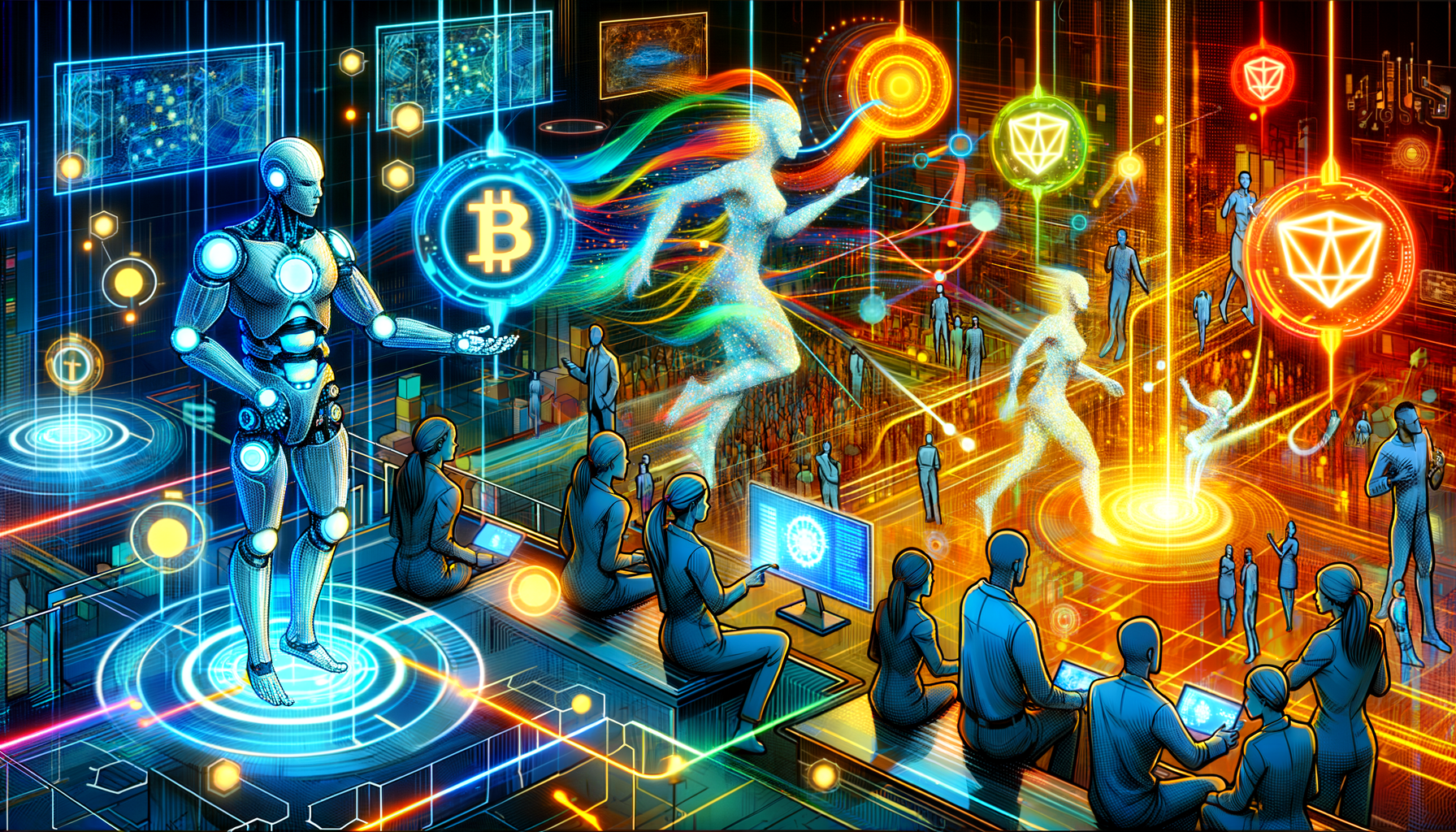Autonomous Tech & Blockchain to Transform Key Industries

“`html
The Essentials at a Glance
- Autonomous machines and humans could collaborate in teams in the future, supported by blockchain technologies.
- Blockchains and smart contracts provide a secure, transparent, and decentralized foundation for such collaborations.
- Applications range from education and healthcare to defense and logistics.
- Challenges such as regulatory fragmentation and technical standards still need to be addressed.
The Role of Blockchain in Human-Machine Teams
Integrating autonomous machines into everyday life poses a significant challenge. Blockchains and smart contracts could play a key role by enabling secure communication, transparent rules, and economic incentives. These technologies are suitable not only for humans but also for machines, as they do not require specific identity features like fingerprints or birth dates.
Applications: From Education to Defense
Autonomous machines could be deployed in various sectors to address existing bottlenecks:
- Education: Robots could assist teachers by providing individualized support to students and explaining complex concepts. This could address the global teacher shortage, which UNESCO predicts will grow to 44 million by 2030.
- Healthcare: From patient monitoring to assisting in surgeries, robots could reduce the workload of nurses and doctors. With a projected shortage of 12.9 million healthcare professionals by 2035, this is an urgent need.
- Defense: Autonomous systems like drone swarms could take on dangerous or impossible tasks, enhancing human safety.
Challenges and Solutions
The development and implementation of human-machine teams face several hurdles:
- Regulatory Fragmentation: Different laws around the world complicate the adoption of autonomous systems. Blockchain-based governance frameworks could help achieve uniformity.
- Technical Standards: Global standards for safety, ethics, and operations are required for seamless collaboration between humans and machines.
- Funding: Decentralized Autonomous Organizations (DAOs) could accelerate research and development by leveraging new funding models such as token-based approaches.
How Blockchain Accelerates Development
Blockchain technologies offer an open and verifiable structure that enables developers to securely share data, models, and progress. This allows autonomous machines to transition from prototypes to practical applications more quickly. Smart contracts also facilitate task distribution and resource utilization between machines and humans.
You should read that too:
-
 Asian Slots – The Best Asia-Themed Online Slot Games
Asian Slots – The Best Asia-Themed Online Slot GamesReading time: ~ 3 minutes
-
 Sea Slots – The Best Ocean-Themed Slots
Sea Slots – The Best Ocean-Themed SlotsReading time: ~ 3 minutes
-
 Oyine N.V. Casinos
Oyine N.V. CasinosReading time: ~ 3 minutes
-
 Versus Odds B.V. Casinos
Versus Odds B.V. CasinosReading time: ~ 3 minutes
-
 Danneskjold Ventures B.V. Casinos
Danneskjold Ventures B.V. CasinosReading time: ~ 3 minutes
A Glimpse into the Future
The idea of walking down the street with a humanoid robot might seem futuristic, but it is closer to reality than many think. Thanks to blockchain technologies, the rules governing the behavior of such machines could be public and immutable, fostering trust. This infrastructure could not only revolutionize collaboration between humans and machines but also reshape how we address global challenges.
Our Assessment
The combination of blockchain and autonomous machines has the potential to transform numerous industries. The technology provides a robust foundation for collaboration, transparency, and innovation. However, regulatory and technical challenges must be resolved to unlock its full potential. For the gambling industry, similar technologies could play a role in the future, such as automating processes or ensuring fairness through transparent smart contracts.
“`
| Best casino to play at | CoinKings |









 Advertising transparency
Advertising transparency